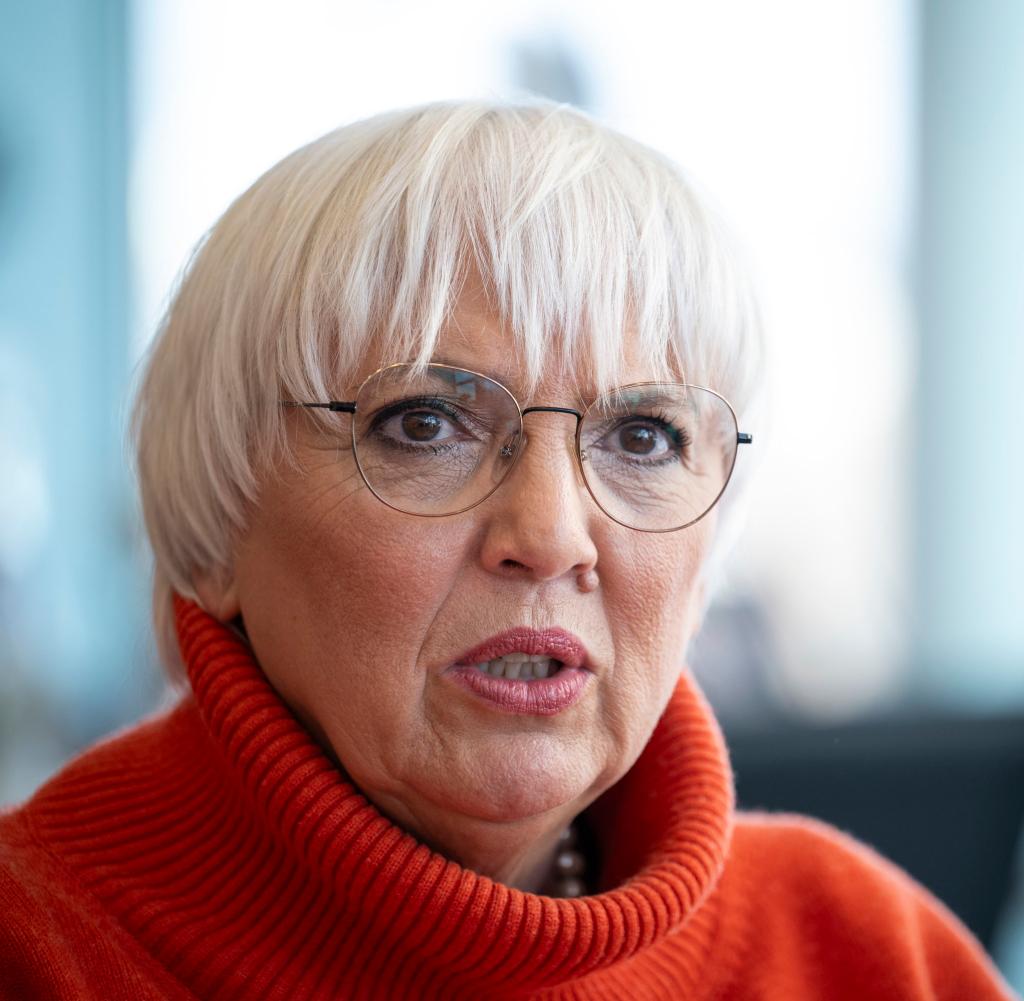Bundestag creates new constituency in Bavaria – advantage for Claudia Roth?

Minister of State for Culture Claudia Roth (Greens) could more easily win a direct mandate by changing the constituency
Source: dpa/Hannes P Albert
The Bundestag has made a change to the constituencies: Due to population development, a constituency is moving from Saxony-Anhalt to Bavaria. But the new division in Bavaria is controversial. Green veteran Claudia Roth could benefit from the traffic light plans.
bThanks to the growing population, Ayern will have a new constituency in the next federal election. On Thursday, the Bundestag decided on a corresponding change to the electoral law at the suggestion of the SPD, the Greens and the FDP. Afterwards, a constituency from Saxony-Anhalt moves to the Free State – because of the shrinking population there.
Specifically, the Anhalt constituency, which includes Bitterfeld-Wolfen and Köthen, among others, will disappear. The affected voters will be distributed among neighboring constituencies. In Bavaria, the new Memmingen constituency is being created from parts of the previous constituencies of Augsburg-Land, Neu-Ulm and Ostallgäu. Bavaria will now have 47 constituencies, but the total number of federal constituencies across Germany will remain the same at 299.
Because Bavaria’s additional constituency is being created in the Swabian part of the country instead of in downtown Munich, the traffic light coalition and the Union faction accused each other in the debate of wanting to manipulate the right to vote out of self-interest. Gerrymandering is the term for a politically motivated redistricting that occurs again and again, especially in the USA.
A Green Party veteran, Minister of State for Culture Claudia Roth, could benefit from the traffic light reform. In the last federal election, Roth received 20.6 percent of the first votes in the Augsburg city constituency. She was defeated by the CSU candidate Volker Ullrich, who received 28.1 percent of the vote. Roth entered the Bundestag via the Green Party’s state list.
The domestic policy spokesman for the CSU regional group, Alexander Hoffmann, criticized that the “arbitrary” transfer of the CSU-heavy Königsbrunn municipality to the new constituency would increase Roth’s chance of winning a direct mandate in the city of Augsburg. In fact, the gap between Ullrich and Roth in Königsbrunn was a clear 22.7 percentage points. Roth would then no longer have to fight for this community in the next election.
Till Steffen, parliamentary director of the Green parliamentary group, rejected the allegations. Roth has never been directly elected in her Augsburg constituency anyway – so nothing will change for her. Rather, the new constituency is being set up in Swabia because two constituencies in this region are so large that they need to be reformed anyway.
Change in electoral law not agreed with Bavaria
The Bavarian Ministry of the Interior had also criticized the new design before the vote. The ministry argues that the plans have not been coordinated with Bavaria “in contrast to previous state practice,” they are not sustainable in the medium to long term, and a much more obvious solution would be for an additional constituency in Bavaria.
Constituencies should also “form a coherent and well-rounded whole whose citizens represent a regional political unit,” said the Interior Ministry. The new constituency and the adjacent Ostallgäu constituency would have “high negative deviation values” in the future. It is therefore already foreseeable that the constituencies will be redesigned. The proposed division therefore contradicts the principle of constituency continuity. In addition, a more obvious solution would have been to set up another constituency in the state capital Munich.
The deputy chairman of the SPD parliamentary group, Dirk Wiese, rejected any criticism of the procedure. Since June 2023, there have been half a dozen rounds of voting, including with the CDU/CSU, on changes to the constituency layout, emphasized Wiese.
He accused the Union of “ultimately blocking any agreement” instead of working on compromises. Now the traffic light is implementing “what the Federal Ministry of the Interior proposed in coordination with the Federal Returning Authority”. With a view to the preparations for the federal election next year, it is important to create legal certainty now.
In “Change in Power”, journalists Dagmar Rosenfeld and Robin Alexander from the WELT editorial team discuss Germany’s major political questions every Wednesday. Subscribe to the podcast at, among other places Spotify, Apple Podcasts, Deezer, Amazon Music or directly via RSS feed.



